Popular crossings to France from the UK:
Ferry to France from the UK: cheapest, fastest and best overnight routes
Thinking about sailing from England to France? With 11 routes linking southern England to Hauts-de-France, Normandy and Brittany from ports such as Dover, Portsmouth and Plymouth, it’s easy to pick a crossing that fits your plans. All main UK–France ferries take vehicles, so bring the car, caravan or campervan and enjoy the flexibility of a road trip.
Use our route map and booking tools to compare your options side by side – from budget-friendly short-sea hops to overnight sailings with cabins. We also share firsthand tips and experiences from our own crossings to help you make informed choices.
Heads-up on price: the “cheapest” option depends on where you live in the UK and your total trip cost (fuel, tolls, parking, timing and accommodation). Treat the picks below as a smart starting point, then compare with your nearest ports.
Our straightforward top picks
- Cheapest pick (often for the South East): Dover ⇄ Calais (short-sea route). Typical crossing time: +/- 90 minutes. Current “from” price: £89 one way (car + up to 4). Note: Seasonal demand applies.
- Fastest pick: Dover ⇄ Calais (90 mins) or Dover ⇄ Dunkirk (2 hours) current “from” price: £89 one way (car + up to 4).
- Best overnight pick: Portsmouth ⇄ Caen (cabins available). Typical crossing time: around 5½–6 hours overnight. Current “from” price: from £109 each way (guide fare; check live availability for cabin/car options).
- Best destination pick: Portsmouth ⇄ Saint-Malo (for a stunning walled town and a great base for Brittany). Typical crossing time: around 8–9 hours overnight.
Why we like it: scenic arrival, walkable old town, superb food scene, family-friendly beaches and easy drives to Cancale, Dinard and Mont-Saint-Michel. Seasonal mini-cruise options add a full day ashore.
Map: ferry crossings UK to France
In short: 🇬🇧 UK to France by ferry
- Main departure ports: Dover, Portsmouth, Newhaven, Plymouth and Poole.
- Popular destinations: Calais, Dieppe, Cherbourg, Caen, Le Havre, Roscoff and St Malo.
- Travelling with a car or camper? Dover-Calais and Dover-Dunkirk offer the fastest and most frequent crossings, while the longer routes from Portsmouth and Plymouth are ideal for holidays in western France.
- Foot passengers: You can also travel as a foot passenger on routes such as Newhaven-Dieppe or Portsmouth-Caen.
- Crossing times: From 90 minutes (Dover-Calais) to overnight sailings of 8-11 hours on the western routes.
- Tip: For a more relaxed start to your trip, choose an overnight crossing with a cabin – you’ll arrive rested and ready to explore France, or drive along.
About the crossings to France
The most popular way to reach France by ferry is the Dover to Calais route, it’s the shortest and fastest crossing between the two countries. However, it’s not the ideal choice for everyone. Many travellers prefer a longer sailing that takes them further south, or an overnight crossing for a more relaxed journey. On these night routes, you can enjoy dinner on board, sleep in a private cabin, and wake up in France ready to start your day. Brittany Ferries operates several comfortable overnight crossings to Normandy and Brittany – with the Portsmouth to Caen route being the most popular alternative to Dover-Calais.
With so many routes and operators between Britain and France, we’ll start by highlighting the key perks of each option before diving into the details of individual crossings.
- Ferries from Dover to Hauts-de-France are the shortest and most affordable.
- Ferries to Normandy ports (Cherbourg, Caen, Le Havre, and Dieppe) offer longer crossings but take you further south in France.
- Arrival ports Le Havre and Dieppe are close to Paris.
- Cherbourg and Caen are convenient for journeys to southern France.
- Ferries to Brittany are typically overnight crossings.
Ferry crossings to France from Britain sorted by region (in France)
Explore all the ferry routes to France, grouped by region so you can easily find the one that fits your trip.
The Strait of Dover Ferries between France and the UK
The ferries from Dover operate frequently and are quite similar in terms of price and speed. We've tested them all, and thanks to their new ships, we found that P&O provided the best overall quality and comfort experience.
Strait of Dover crossings, in short:
- Dover to Calais: 3 companies – over 30 sailings daily – 90-minute crossing.
- Dover to Dunkirk: 1 ferry company – up to 8 sailings daily – 120-minute crossing
England to Normandy ferries
The ferry services to Normandy arrive in Dieppe, Le Havre, Caen, or Cherbourg. While the journey is longer than the Dover-Calais or Dover-Dunkrik route, it’s shorter than the crossings to Brittany. Normandy provides a convenient entry point into northern France, making it an excellent choice for further travel within the region or beyond.
Brittany Ferries crossings in short:
- Portsmouth – Caen: Brittany Ferries’ most popular crossing – day or night options – is approximately a 6-hour crossing. 3 daily sailings.
- Portsmouth – Le Havre: daily sailing – 6 hours – day crossing.
- Portsmouth to Cherbourg: Day and night crossings are available. This is also an ideal route for travelling to the south of France.
- Looking for all the crossings from Portsmouth to France?
England to Brittany ferries
The crossings to Brittany are relatively long crossings on cruise ferry ships, offering a comfortable option for several types of travellers. Among the ferries to Brittany there are
- Those from Cornwall, Dorset, Somerset, the Greater London area, and, for example, Devon, heading to France. You can also find more information on the pages with ferries from Portsmouth to France and ferries from Plymouth to France.
- Travellers specifically visiting Brittany / Saint Malo
- People who prefer a longer overnight crossing can continue their journey in France well-rested the next day.
- These routes are ideal for exploring France and beyond with the flexibility of your vehicle/car.
- The new ferry from Plymouth to Saint Malo is now also added.
Brittany Ferries: what to book (cabins, tickets & upgrades)
Not sure what to book on Brittany Ferries? We’ve bundled the essentials into one simple guide: which cabin (or seat/lounger) fits your crossing, what the real difference is between Economy, Standard, and Flexi, and which upgrades (lounges, dining, food options) are actually worth it – and which you can skip. You’ll find the full cabins, tickets, and upgrades guide here.
Tip: on day sailings, it’s mainly about comfort; on overnight crossings, a cabin can make the whole trip.
Before you board: our ferry travel experiences
By now, we’ve tried most of the ferry crossings between the UK and France ourselves. In our travel reports, you can get a real feel for what these sailings are like and how everything works – from boarding to the restaurants on board and the cabins. Below you can find some of the most-read before-boarding guides.
Portsmouth to Cherbourg by Ferry: Sailing on the Santona with Brittany Ferries
By ferry from Saint-Malo to Portsmouth: our experience and a visual impression
We tried every way to cross the Channel from Dover to Calais
On board the ferries to France and route maps
UK to France crossings
| Crossing | Sailing time | Distance | Sailings | From price | Operated by: |
|---|---|---|---|---|---|
| Dover ↔ Calais | 1h 30m | 26 miles | Up to 35 times per day | £80.00 | P&O, Irish Ferries, DFDS |
| Dover ↔ Dunkirk | 2 hours | 47 miles | Up to 8 times per day | £81.00 | DFDS |
| Portsmouth ↔ Caen | 5h 45m | 112 miles | Up to 3 times per day | £126.00 | Brittany Ferries |
| Portsmouth ↔ Le Havre | 5h 30m | 106 miles | Up to 5 times per week | £77.00 | Brittany Ferries |
| Portsmouth ↔ Cherbourg | 6–8 hours | 84 miles | Up to 3 times per week | £99.00 | Brittany Ferries |
| Poole ↔ Cherbourg | 4h 30m | 77 miles | Up to 1 time per day | £121.00 | Brittany Ferries |
| Newhaven ↔ Dieppe | 4 hours | 78 miles | Up to 4 times per day | £75.00 | DFDS |
| Plymouth ↔ Roscoff | 5h 30m / 11 hours (overnight) | 112 miles | Up to 8 times per week | £146.00 | Brittany Ferries |
| Poole ↔ Saint-Malo | 6h 20m / 12 hours (overnight) | 143 miles | Up to 4 times per week | £184.00 | Condor Ferries |
| Portsmouth ↔ Saint-Malo | 11 hours | 156 miles | Once per day | £165.00 | Brittany Ferries |
Prices and availability for the crossings to France
Tickets for ferries – how to use the ferry booking engine? Simply enter your departure port, destination, and travel dates in the search box to compare ferry ticket prices between the UK and France.
If your plans are flexible, try adjusting your travel dates – prices can vary depending on the season and day of the week. You’ll instantly see the available crossings, operators, sailing times, and fares, helping you find the best route and price for your trip across the Channel
What’s most relevant for 🇬🇧 UK travellers?
For British travellers, taking the ferry to France is one of the most enjoyable and flexible ways to cross the Channel. Whether you’re off for a weekend in Normandy, a family holiday in Brittany, or an onward road trip through Europe, there’s a route that fits your plans.
Main routes from the UK
- Dover – Calais / Dover – Dunkirk: the fastest and most frequent Channel crossings, ideal for short trips or onward travel.
- Portsmouth – Caen / Cherbourg / St Malo / Le Havre: great for holidays in western France: comfortable overnight sailings with cabins.
- Plymouth – Roscoff / Poole – Cherbourg: perfect for travellers from South West England heading to Brittany or Normandy.
- Newhaven – Dieppe: a relaxed and affordable alternative, popular with foot passengers and cyclists.
Crossing times: from about 90 minutes (Dover-Calais) to 8-11 hours overnight on the longer western routes.
Why these routes are ideal
Dover – Calais / Dover – Dunkirk
Ideal for: short breaks and onward travel into Europe.
Why choose it: the fastest and most frequent crossings, excellent value and flexibility, with quick access to northern France, Belgium and beyond.
Portsmouth – Caen / Cherbourg / St Malo / Le Havre
Ideal for: families and road trippers who prefer an overnight crossing.
Why choose it: board in the evening, sleep in a private cabin, and arrive refreshed. Plenty of on-board dining, entertainment and space to relax.
Plymouth – Roscoff / Poole – Cherbourg
Ideal for: travellers from South West England heading to Brittany or western France.
Why choose it: calmer, scenic sailings that save hours of driving versus Dover, arriving close to coastal holiday regions.
Newhaven – Dieppe
Ideal for: foot passengers, cyclists and anyone who prefers smaller ports and simpler boarding.
Why choose it: often less crowded and more affordable, with convenient rail links towards London and Paris.
Travel tips
- Book early for summer crossings: cabins and family deals sell out quickly.
- Dover routes offer maximum frequency; Portsmouth and Plymouth routes offer maximum comfort.
- Use our ferry maps and travel reports to see what each route is really like: from boarding to dining and cabins.
Additional Information
When travelling on crossings between France and the UK, there are a few important things to keep in mind:
- Bring your passport: Since Brexit, a driver's licence or ID card is no longer sufficient for travel.
- Download entertainment in advance: On longer night crossings, it’s a good idea to download series or movies beforehand, as Wi-Fi on board can be expensive, and roaming in international waters is costly.
- Foot passengers: Not all ferries accept foot passengers, so check ahead of time.
- Travelling with young kids on a night ferry? We’ve got some helpful tips for travelling with kids here.
- Remember to drive on the right-hand side of the road after disembarking. It can be a bit confusing for the first 10 minutes, but you'll adjust quickly.
- Worried about getting seasick? In this article, you’ll find some tips to help prevent it.
Luggage & Pets
On most ferries, there are no restrictions on the amount of luggage you can reasonably bring. Pets are allowed, but additional fees apply, and they must stay in designated kennels on board. For some destinations, pets need to meet specific requirements, such as certain vaccinations and a pet passport. You can find country-specific regulations and company policies in this post.
Travelling through France
Most people make the ferry crossing with their car, but it's important to note that while the roads in France are generally good, many are toll roads. The costs aren't high individually, but they can add up significantly on a long drive to the South. Google Maps has a function that allows you to avoid toll roads, which can help save some money!
If you're not travelling by car, you can opt to explore France by train. The country is well-known for its efficient TGV connections. Many stations are easily accessible from some of the ports of arrival, or you could consider taking the Eurostar through the Channel Tunnel. Once in Paris, you can either switch to other connections or explore the city.
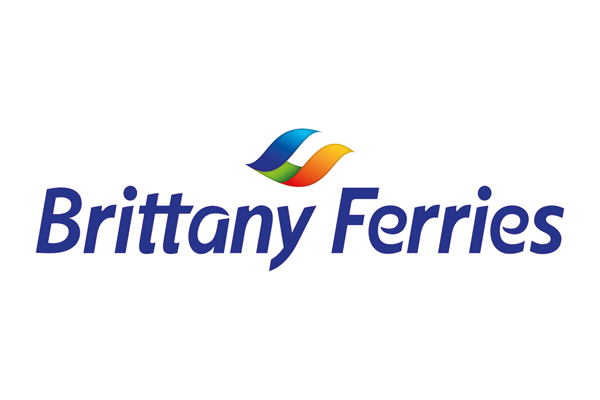


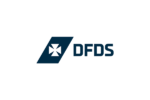
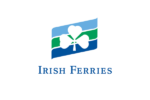

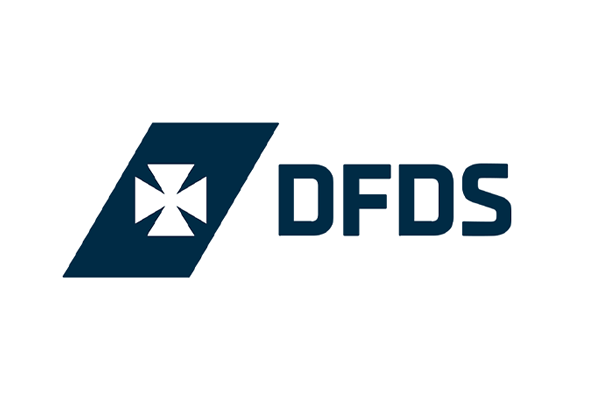
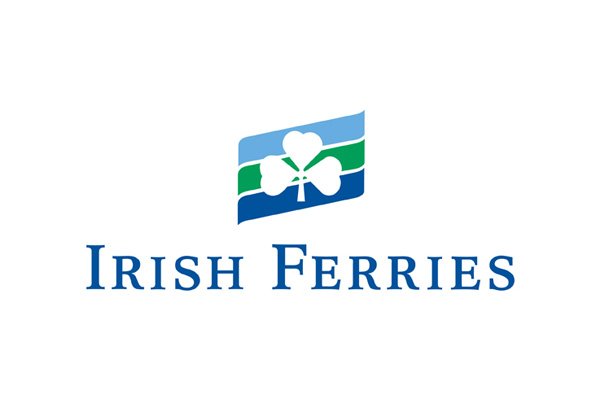
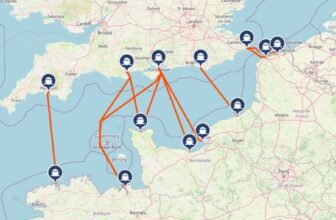
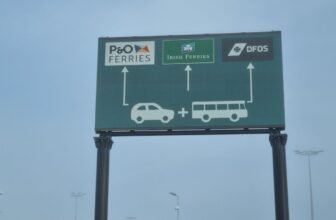
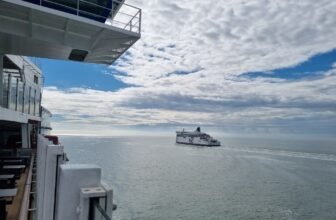
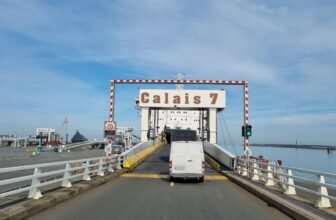




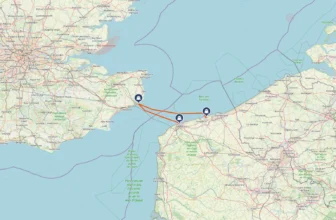
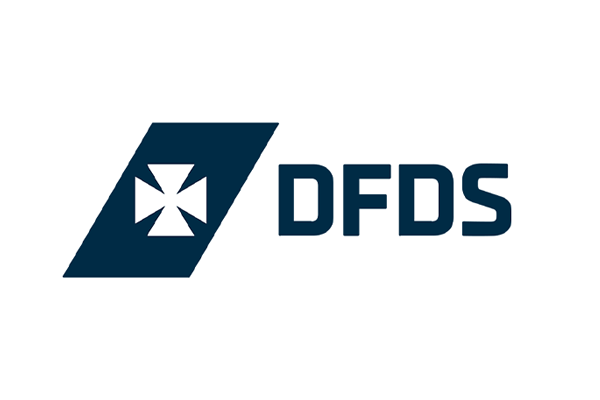
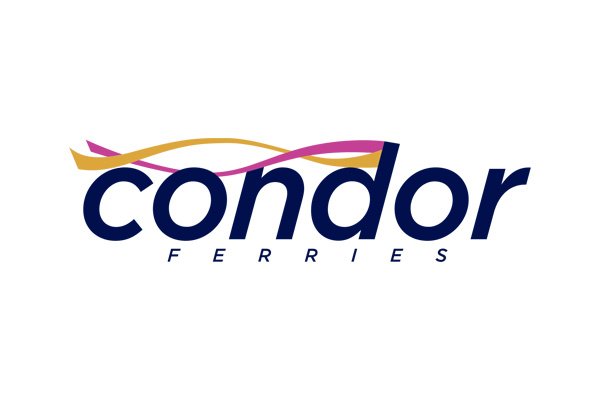
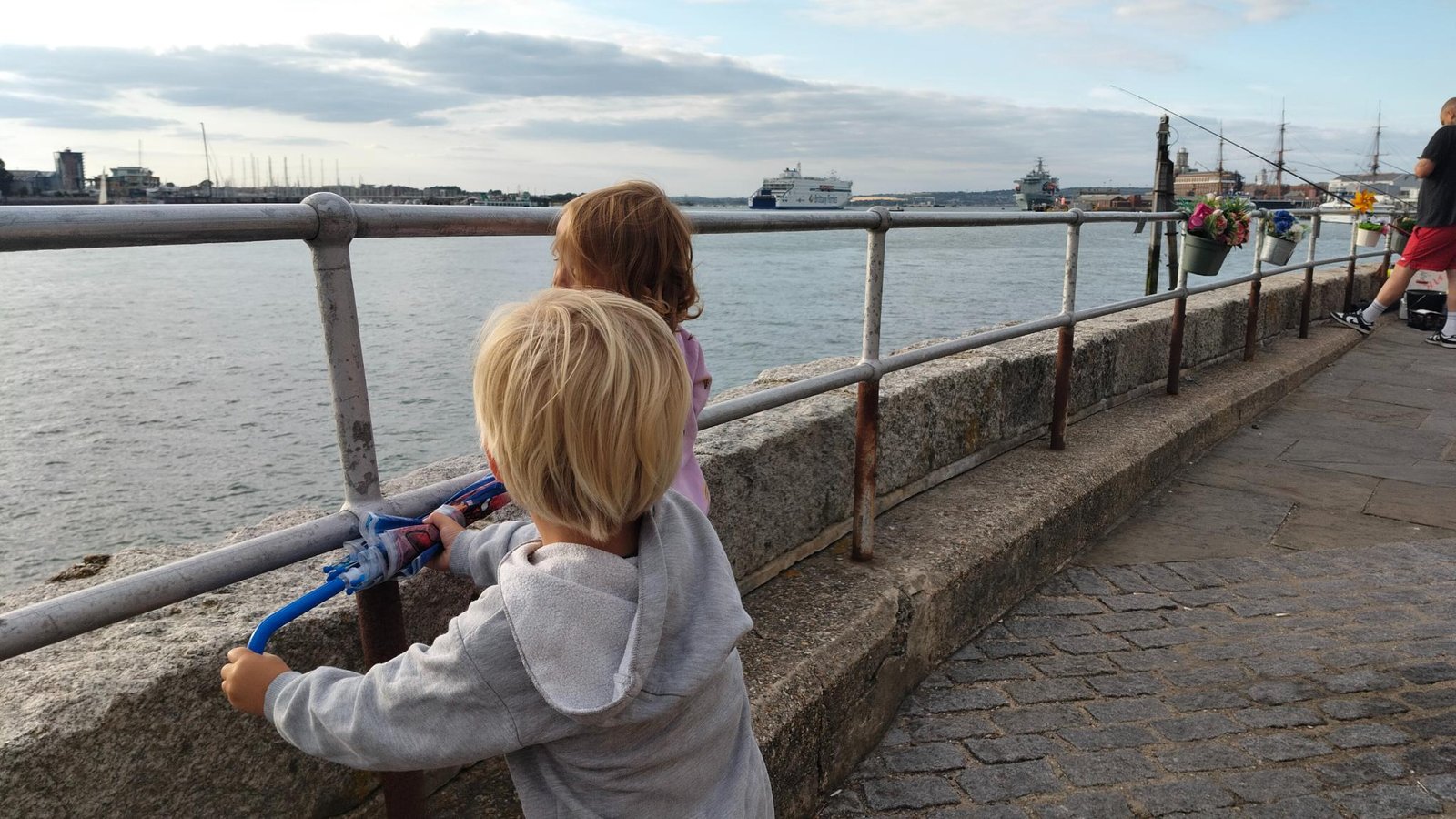
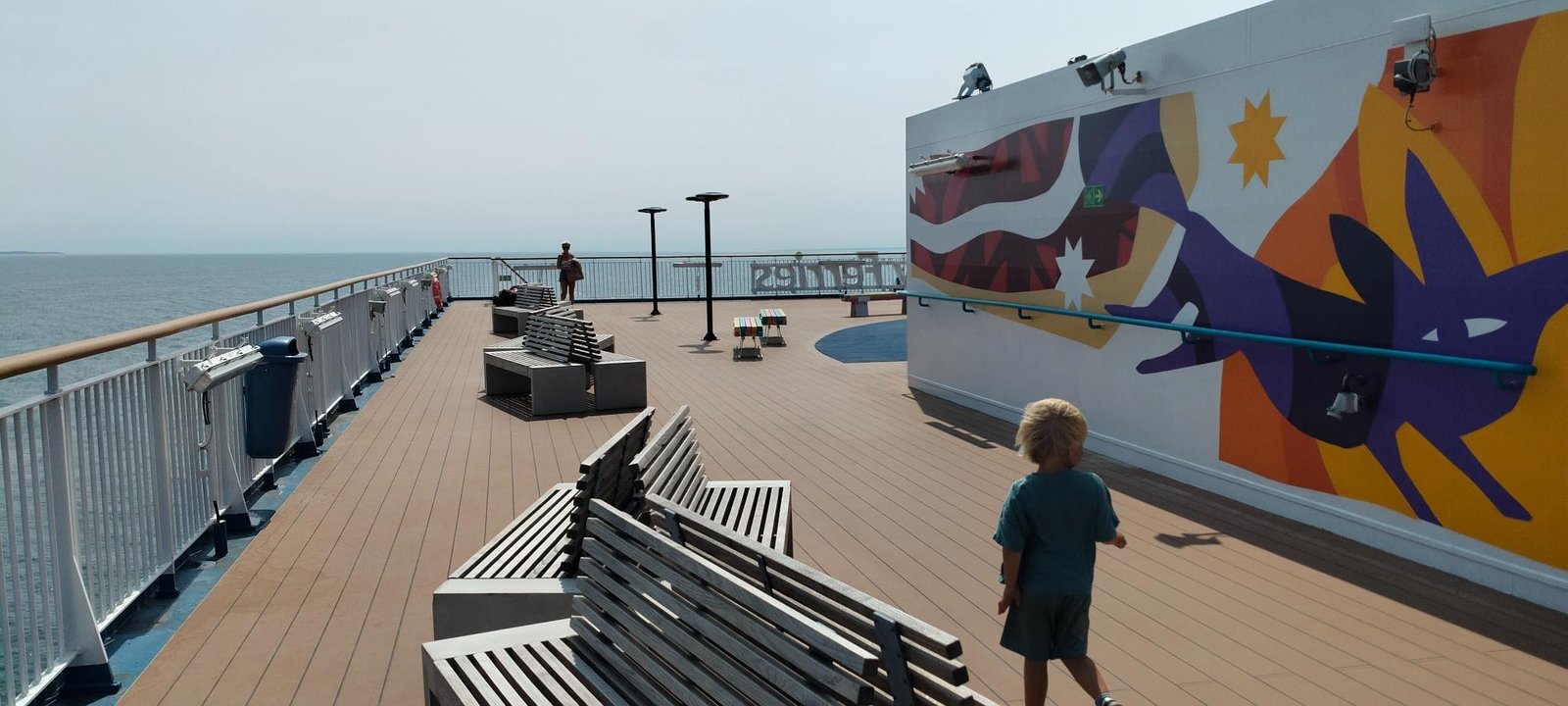
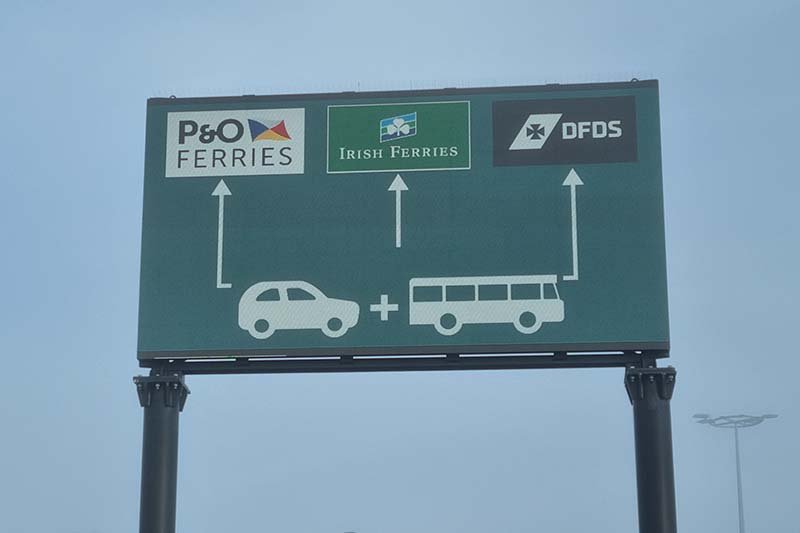
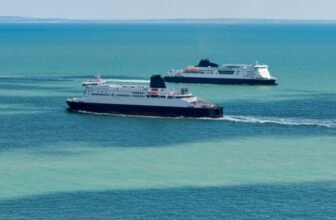
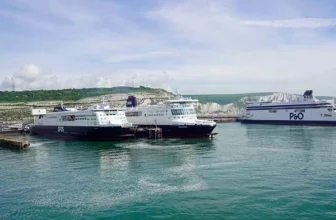
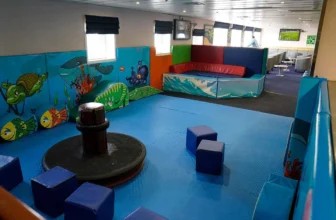
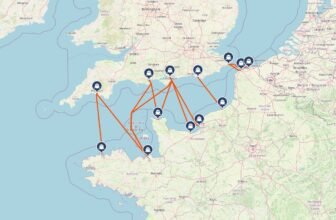

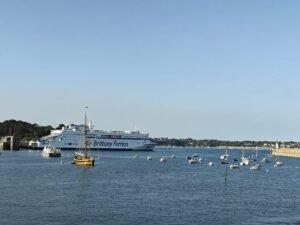
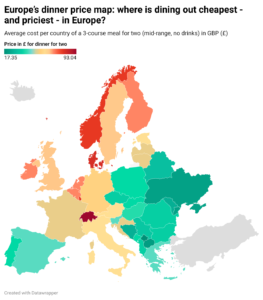



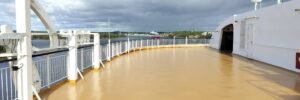
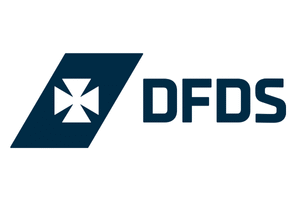
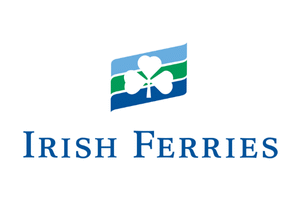
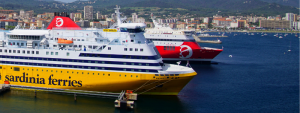
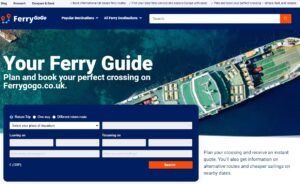


Fastest ferry route uk to france
Hi Kenneth,
That would be the Dover to Calais crossing – approx 90 mins.